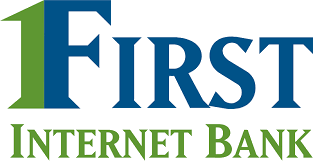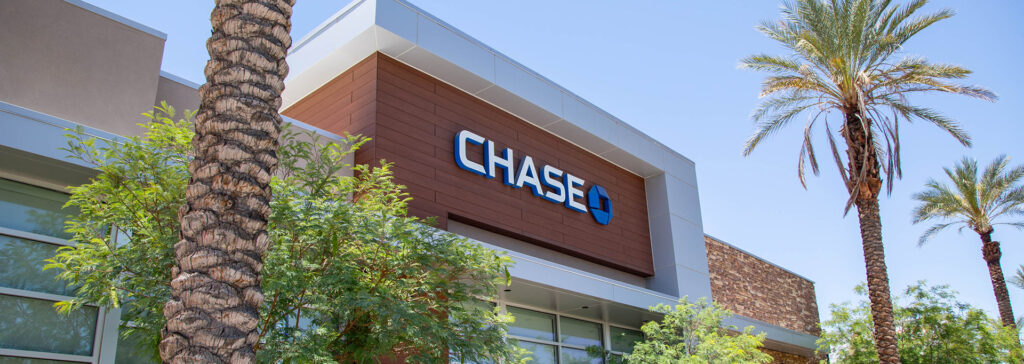If you want a savings account with higher interest rates but with checking account features, money market accounts are worth considering. Here are the best money market accounts as recommended by the editors at Slickdeals.
Note that the average percentage yield (APY) for a money market account fluctuates as banks adjust their rates to the market. If you’re interested in locking in your savings APY, consider a certificate of deposit (commonly referred to as a CD).
What Is a Money Market Account?
A money market account is a savings account with checking account features, and it’s FDIC-insured up to $250,000. You can make up to six withdrawals per month, and you may get a debit card and checks. You might need to meet a minimum deposit as well as pay other fees to maintain your account.
Money market accounts are similar to savings accounts because they typically earn interest and may limit how many transactions you can make. MMAs are also like checking accounts, though, because they usually come with debit cards and the ability to write checks.
Money market accounts are not money market mutual funds, which are a type of mutual fund available through brokerage firms and other investment service providers.
How Do Money Market Accounts Work?
Money market accounts work like a combination of a savings account and checking account. Here are some of the important features to know about a money market account:
- Earns high APY: MMAs generally have high interest rates similar to those of high-yield savings accounts.
- May limit transactions: Like savings accounts, MMAs must follow Regulation D, which limits withdrawals to six per month, but this was lifted during the COVID-19 pandemic, so now it depends on the account (though many still follow this rule).
- Comes with a debit card: Most MMAs give you a debit card to use with your account; just keep any withdrawal limits in mind as you use it.
- Can write checks: Many MMAs allow you to write checks against the account, so you can use it similarly to a checking account in this way.
- Are FDIC insured: As long as the financial institution has FDIC insurance, deposit accounts like MMAs are protected up to $250,000 in the case of bank failure.
How to Choose a Money Market Account
To choose the right money market account for you, consider the features that are most important to you and any limitations that might restrict your financial plans.
Here are several key factors to consider when choosing a money market account:
- Interest rates: Shop around to find the best money market account rates. Online banks tend to offer the most competitive rates, but they lack physical locations for in-person banking needs.
- Account requirements: See if there are any requirements to open or maintain a money market account at the financial institution you’re considering, such as a minimum opening deposit or ongoing balance requirement.
- Fees: Some banks charge monthly service fees for managing your money market account. Other potential fees include for those excessive transactions, overdrafts and returned checks. Fees can cut into any savings you earn with your MMA, so look for a bank that charges few to no fees.
- Funds access: Know going in how you want access to your money. Then you can look for an MMA that offers a debit card, checkbook or fee-free ATM access, for example.
- Customer service: Do you prefer in-person banking, online or both? Check how you’ll have access to your MMA and the bank’s customer service as you shop around. Look for neighborhood branch access if that’s important to you, and scope out the reviews for the mobile app or other online tools if you plan to bank online.
- FDIC insurance: The vast majority of banks offer FDIC insurance up to $250,000 on deposit accounts like MMAs, but it’s always good to check before you move your money. The FDIC’s online search tool is the best place to look, and you can typically find the information on the bank’s site. Federally insured credit unions have similar protections through the NCUA, and you can check the directory or find the information on the credit union’s website.
Pros and Cons of a Money Market Account
Pros
- Typically have higher interest rates than standard savings accounts
- Often come with a checkbook and debit card, providing more access to funds when needed
Cons
- Usually limited to six withdrawals per month
- May carry monthly service fees
- Often carry higher minimum deposit requirements
- Not all money market accounts come with check-writing privileges or debit cards
Pros of Money Market Accounts
Here’s a look at some of the best features you’ll find with money market accounts:
- Higher interest: MMAs typically have higher interest rates than standard savings accounts and sometimes even rival the best high-yield savings accounts.
- Easy access to funds: These accounts usually come with a checkbook and debit card, providing more access to funds when needed. Some offer fee-free ATM networks, as well.
Cons of Money Market Accounts
Depending on your needs, here are some elements of money market accounts that could be downsides:
- Transaction limits: MMAs usually limit you to six withdrawals per month, but since the official regulation was waived, it’s best to check the fine print for any account you’re considering.
- Fees: These accounts often have monthly service fees, and likely some other fees as well. Some may be waivable, but it’s best to check the fee schedule before you sign up.
- Account minimums: MMAs often have higher minimum deposit or balance requirements than you’ll find with checking accounts and some savings accounts.
- May have less access to funds: Not all MMAs come with checks and debit cards, which could limit your access to funds more than what you’d find with a checking account.
Money Market Accounts vs. Savings Accounts
Both money market accounts and savings accounts can help you to save toward specific financial goals, but these account types vary in some key ways. Money market accounts provide more flexibility, making them an excellent choice for an emergency fund or other savings goals that require accessible funds at any given time. Savings accounts tend to be best for longer-term savings plans, especially when you know you won’t need to move money around very much since funds can be a little less accessible.
Here’s a quick look at money market accounts vs. savings accounts, and how they compare to checking accounts, too.
| Money Market Account | Savings Account | Checking Account |
|---|---|---|
|
Higher interest than standard savings accounts |
Usually lower interest than MMA (high-yield savings accounts may be higher) |
Little to no interest |
|
Usually comes with checks |
Rarely offers checks |
Always includes checks |
|
Most accounts offer debit cards |
Rarely comes with debit cards |
Always includes a debit card |
|
Most have withdrawal limits |
Most have withdrawal limits |
No withdrawal limits |
|
Usually higher minimum deposit than savings or checking accounts |
Often lower minimum deposit than MMA |
Usually has a low minimum deposit |
|
Best for: Earning some interest with the flexibility to make occasional withdrawals |
Best for: Earning interest and rarely tapping funds |
Best for: Everyday spending and frequent withdrawals |
The best option may depend on which account offers the best rates and other perks. It may also depend on your specific needs. If you prefer access to additional features, like check-writing privileges and ATM access, a money market account may make more sense. If you don’t require immediate access to your funds, a high-yield savings account may offer more competitive APYs depending on the bank or credit union. Determine what’s most important to you and choose the option that best addresses your needs.
Is a Money Market Account Right for Me?
A money market account could be right for you if you’re looking for an account that lets you have relatively easy access to your funds while allowing you to earn some interest. Money market accounts also offer more flexibility than what you typically find with savings accounts and the ability to write checks.
On the other hand, a money market account may not be right for you if you know you’re not planning to touch the money you stash there for a while. In that case, a high-yield savings account or even a certificate of deposit could be a better bet and might let you earn more interest. And those who need a high degree of liquidity are likely better suited for a checking account that doesn’t limit transactions and makes accessing your money easier.
Money Market Account FAQs
-
A money market account (MMA) is an interest-bearing deposit account available at some banks, credit unions or other financial institutions. Money market accounts offer similar features to savings accounts, like earning interest or transaction limits. They may also include features similar to checking accounts, such as a debit or ATM card or check-writing privileges.
Like other deposit accounts, deposits kept in a money market account are protected by the government up to $250,000 per depositor per account per institution. The Federal Deposit Insurance Corporation (FDIC) insures money market deposits held at banks. The National Credit Union Administration (NCUA) protects money market account deposits kept in credit unions.
Money market accounts differ from money market mutual funds, which are a type of mutual fund available through brokerage firms and other investment service providers.
-
Money market accounts offer features found with savings and checking accounts. Generally, they feature competitive interest rates similar to high-yield savings accounts. Money market accounts feature variable interest rates, meaning rates can change at any time based on the current economic climate and other factors.
Some money market accounts feature tiered interest rates based on your account balance. Accountholders may need to maintain a specific minimum balance to earn interest or avoid monthly account service fees. Typically, money market accounts are subject to six withdrawals per statement period like a savings account, although some banks may follow different guidelines.
Depending on the bank or credit union, money market accounts may come with a checkbook and check-writing privileges or a debit or ATM card. Money market accounts aren’t necessarily a substitute or alternative to everyday checking accounts due to their usual transaction limits. Money market accounts are a good option for individuals with short-term savings goals, like funding a vacation or building an emergency fund.
-
The government protects deposits to money market accounts at federally insured banks or credit unions. That means if your bank fails, deposits are protected up to legal limits, similar to savings accounts and other bank account types.
The type of insurance coverage depends on where you choose to bank. The Federal Deposit Insurance Corp (FDIC) provides insurance coverage for federally insured banks. The National Credit Union Administration (NCUA) regulates credit unions and insures deposit accounts at federally insured credit unions. Both insure deposit accounts up to $250,000 per depositor, per insured bank or credit union, per account category.
-
Some but not all money market accounts allow you to write checks. Check writing privileges vary depending on the financial institution. Some banks or credit unions also provide free debit cards and access to an ATM network.
Some financial institutions provide online bill pay services, allowing you to pay bills without access to a checkbook.
Money market accounts with check-writing privileges and debit cards provide more ways to access funds than a standard savings account. However, many banks limit monthly withdrawals with money market accounts, often making them less flexible than a checking or savings account.
-
The catch with a money market account is that funds tend to be a little less accessible than what you’ll find with a checking account, and you might be able to get higher APYs with high-yield savings accounts. That said, MMAs tend to be pretty convenient—just look for the features you want and check for things you want to avoid, like fees or withdrawal limitations, before you sign up.
-
No, money market account interest rates are variable. That means they can change any time, just like they can with savings accounts. If you’re looking for a fixed interest rate, a certificate of deposit is your best bet.
-
The difference between a money market account and a money market fund is that a money market account is a deposit account and a money market fund is an investment account.
Key differences between a money market account and a money market fund are:
- A money market account is a deposit account, like a checking or savings account
- A money market fund is a type of low-risk investment account
- Money market accounts are usually FDIC insured, while money market funds are never FDIC insured
- A money market fund is a type of mutual fund investors sometimes use to store money when they’re not investing elsewhere
- Money market funds tend to have fairly low rates of return in exchange for low risk, while money market accounts usually have decent interest rates and essentially no risk





